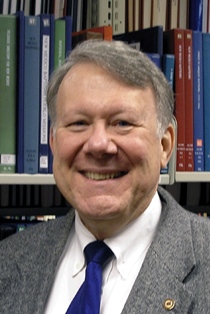Archived News - Mar 2013
ISGS News - Thursday, March 28, 2013
Changes to the ISGS 2013 Webinar Schedule
Due to scheduling conflicts, the Illinois State Genealogical Society webinars for October 2013 and November 2013 have been switched. The new schedule is as follows:
- October 8, 2013 at 8 PM Central - Up In Smoke!! What To Do When the Courthouse Burns, with Peggy Clemens Lauritzen
- November 12, 2013 at 8 PM Central - Little Houses on the Prairie: Midwestern Research Techniques, with Diana Crisman Smith
- If you had previously added the webinar to your Outlook calendar via the link provided at registration, remove the current calendar entry first, then use the "Add to Outlook" link in the GoToWebinar update email to add the corrected version back to your calendar.
- If you added either of the sessions to your calendar manually, make sure to update your calendar entry with the new information provided in the GoToWebinar update.
ISGS News - Monday, March 25, 2013
ISGS Office Closed Monday, March 25, 2013
The ISGS Office will be closed on Monday, March 25, 2013, due to inclement weather.
The office will be open from 10am to 1pm on Wednesday, March 27, 2013.
Regular hours will resume on Thursday, March 28, 2013.
ISGS News - Tuesday, March 19, 2013
Upcoming ISGS Webinars - April 2013
Join us on Tuesday, April 9, at 8:00 PM Central, where Debbie Mieszala, will present, Digging Through Documents Word by Word. To attend this webinar, register at https://attendee.gotowebinar.com/register/3231307790843086592.
Last week's webinar, Back to Your Roots: Planning a Successful Heritage Research Trip, presented by Lisa Alzo, is now available to ISGS members in the Members Section of the ISGS website (http://ilgensoc.org/members.php).
Upcoming Webinars
-
April 9 – Digging Through Documents Word by Word
Presenter: Debbie Mieszala, CG
Registration: https://attendee.gotowebinar.com/register/3231307790843086592
-
May 14 – Timelines: Placing Your Heritage in Historical Perspective
Presenter: Laura Prescott
Registration: https://attendee.gotowebinar.com/register/6182542135328835840
-
June 11 – The Research Calendar: A Resource You Cannot Live Without
Presenter: Luana Darby
Registration: https://attendee.gotowebinar.com/register/1792803534084357632
For the complete list of upcoming webinars, including the entire 2013 schedule, visit http://ilgensoc.org/cpage.php?pt=234.
And don't forget to spread the word! Forward this email onto your friends and colleagues, post the information to social media sites and/or your blog/website, or print out a few copies of our webinar flyer to hand out at your local society meetings. The flyer can be accessed at http://ilgensoc.org/upload/menu/2013webinarbrochure.pdf.
Support the ISGS Webinar program by making a financial contribution, which will help ISGS expand its educational offerings in a virtual manner. To learn why we need your help, or to make a contribution, please visit http://ilgensoc.org/cpage.php?pt=345.
Please direct any questions to the ISGS Education Committee at isgseducation@ilgensoc.org.
ISGS News - Wednesday, March 8, 2013
Dr. Thomas W. Jones Comes to Southern Illinois

2013 Family History Conference and Book Fair
Web: http://www.rootsweb.ancestry.com/~ilgssi/conf2013.html
Registration: http://www.rootsweb.ancestry.com/~ilgssi/reg_form.html
Registration: http://www.rootsweb.ancestry.com/~ilgssi/reg_form.html
The Genealogy Society of Southern Illinois and John A. Logan College
Saturday, August 10, 2013
8:00 A.M. - 4:00 P.M.
Ray Hancock Conference Center
John A. Logan College
Route 13 & Greenbriar Road, Carterville, IL
Featured Speaker
Thomas W. Jones, Ph.D.
Certified Genealogist & Certified Genealogical Lecturer
Thomas W. Jones, Ph.D., CG, CGL, FASG, FUGA, FNGS, has edited the National Genealogical Society Quarterly since 2002. He is a trustee and a past president of the Board for Certification of Genealogists, past board member of the Association of Professional Genealogists, and recipient of its 2011 Professional Achievement Award and its 2004 Grahame T. Smallwood Jr. Award of Merit.
Retired from a thirty-year career in higher education and professor emeritus at Gallaudet University in Washington, D.C., Tom works full time as a genealogical researcher, writer, editor, and educator. He coordinates courses at the Genealogical Research Institute of Pittsburgh, the Salt Lake Institute of Genealogy, and Samford University's Institute on Genealogy and Historical Research; and he teaches in Boston University's Genealogical Certificate Program.
Tom's research has encompassed records of every state east of the Mississippi, as well as Iowa, Kansas, Missouri, Texas, England, France, Germany, Italy, Ireland, and Wales. He specializes, however, in Georgia and Virginia and is most interested in solving "brick-wall" genealogical problems.
Tom writes and speaks frequently on genealogical methods with broad application across geographic areas, time periods, and levels of expertise. He is known for meaty lectures benefiting genealogists of all experience levels.
Finding "Unfindable" Ancestors
The failure of common research practices to identify ancestors does not mean they are nfindable. This session will describe and demonstrate nine approaches to locating difficult-to-trace ancestors.
Going Beyond the Bare Bones:
Reconstructing Your Ancestors' Lives
Learn how to extract information from frequently used genealogical sources to create biographies that bring ancestors to life.
How to Avoid Being Duped by the Internet
The Internet brings increasingly bountiful amounts of information to genealogists' desktops—some valid, some erroneous, and much of unknown accuracy. Attendees will learn practical strategies for discriminating between correct and misleading information. They also will learn how online genealogical information—even if its accuracy is unknown—can lead to valid conclusions about ancestors.
Missing Something?
Getting the Most out of Genealogical Evidence
Attendees will learn five ways to get more information from the genealogical sources they use: paying attention to all of the evidence in the sources; examining each source's context; using an entire series; paying better attention to what is not in the source (using negative evidence); and combining sources to build a case.

